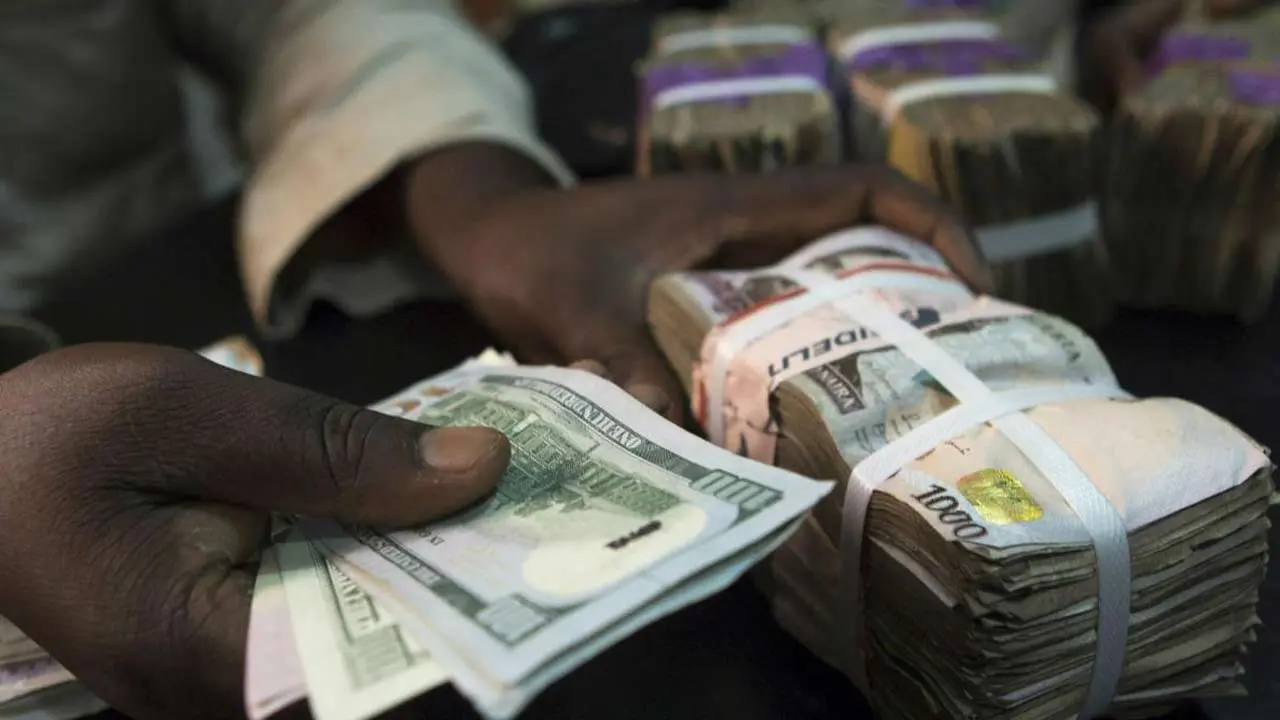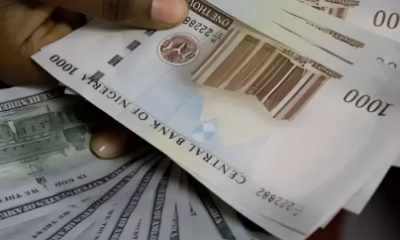The Nigerian naira further declined against the dollar on Monday, January 22nd, 2024, in both the official and black markets.
The domestic currency depreciated 2.54% to close at N925.34 to a dollar at the close of business, based on data from NAFEM where forex is officially traded.
This represents an N22.89 loss or a 2.54% decrease in the local currency compared to the N902.45 it closed at on the previous day.
Similarly, the naira depreciated at the parallel forex market where forex is sold unofficially, the exchange rate quoted at N1360/$1, representing a 0.74% decrease over what it closed the previous day, while peer-to-peer traders quoted around N1371.02/$1.
Credit ratings agency Fitch recently stated that the CBN continues to face a shortage of foreign exchange to clear the forex backlog.
The country’s high debt service to revenue ratio is also contributing to a challenging sovereign credit rating.
READ ALSO: Naira slumps further against Dollar at parallel market
Gaimin Nonyane, Fitch’s Director of Middle East and Africa Sovereigns, expressed that the ongoing foreign exchange shortages in Nigeria would exert pressure on the naira. Currently, there exists a 30% disparity between the official and parallel exchange rates.
She said, “We think that the central bank is still very well short of the amount it needs to be able to clear the foreign exchange backlog and also meet the extremely large external financing by the private sectors,”
Nonyane and Toby Iles, Fitch’s Head of Middle East and Africa Sovereigns, cautioned that Nigeria’s interest payments to revenue ratio, surpassing 40%, poses a significant weakness for its credit rating four times higher than the median for B-rated sovereigns.
Iles pointed out that interest-to-revenue ratios across Africa have more than doubled since 2014, driven by heightened borrowing and increased costs due to global interest rate hikes.
READ ALSO: Huge demand for dollars responsible for Naira decline, says analyst
The Central Bank of Nigeria (CBN) has begun clearing a backlog of FX forwards to companies looking to repatriate the cash abroad. The Governor of the apex bank estimates the total backlog in the range of $7 billion.
The apex bank stated recently it has cleared around $2 billion of the backlog in the past three months and would ensure there is liquidity in the forex market.
Fitch rated Nigeria at B- with a stable outlook despite a cornucopia of macroeconomic malaise- record-level inflation, wobbling naira, and limping crude oil production.
Nigeria’s debt levels have been a cause of concern to many in recent times. In the first quarter of 2023, the debt service to revenue rose to 183%. Nigeria’s total public debt as of Q3, 2023 stands at N87.9 trillion.
In the 2024 budget proposal presented to the National Assembly, the federal government intends to borrow N7.83 trillion to address a budget deficit of N9.18 trillion. Despite this borrowing plan, there is a concerted effort by the federal government to diminish reliance on debts and increase revenue through the Committee on fiscal policy and Tax Reforms.

 Health1 week ago
Health1 week ago
 Business1 week ago
Business1 week ago
 Health6 days ago
Health6 days ago
 Latest1 week ago
Latest1 week ago
 Football6 days ago
Football6 days ago
 Latest1 week ago
Latest1 week ago
 Crime6 days ago
Crime6 days ago
 Football1 week ago
Football1 week ago













